I’m a member of several Facebook chicken groups and see two recurring themes related to roosters: what to do with unwanted cockerels and how to deal with aggressive roosters. I think the answer to both those questions involves some planning and understanding of chicken dynamics.
Surplus Cockerels
Spring is approaching and that means chick season. It also makes us face the dilemma of what to do with surplus cockerels.
Do you currently have a rooster? If not, do you have room for one, or more? Do your local bylaws even allow the keeping of roosters?
Before you put eggs in the incubator or under a broody hen, or pick up straight-run chicks at the feed store think about what you’ll do with unwanted cockerels. Even buying sexed chicks is no guarantee there won’t be a mistake. Your only sure fire way of getting all females is to buy pullets at a stage when it is obvious of their sex, or ones that have already started laying.
So what do we do with surplus cockerels? We can’t, and shouldn’t for the health of our flocks, keep them all. Some folks don’t seem able to re-home or butcher their surplus cockerels. You are not doing your birds any favours by not dealing with the situation.
Too many cockerels usually results in conflict and fighting between the males, and over mating of the females. Dealing with stress upsets flock dynamics and can contribute to bullying, pecking and other health issues.
Remember that roosters can’t utilize the additional calcium in layer feed so make sure to feed them Grower/All Flock so they don’t develop kidney issues.
Keeping A Bachelor Flock
Some people are able to keep bachelor flocks consisting entirely of roosters, which can be a harmonious solution if they have no access to hens. If you want to keep your boys together here are some tips:
- Monitor the pecking order to ensure things are going smoothly, there’s no bullying or injuries.
- Avoid overcrowding both in the coop and the pen.
- Provide multiple feeding and water stations, roost bar space and dust bathing areas.
- Set up escape routes and hiding places.
- Integrate new members gradually and under supervision.
- When adding to your flock make sure they are an adolescent that is not sexually mature (e.g. comb and wattles aren’t red, not crowing yet).
- Give them things to do so they aren’t bored.
- Spend time with them so they see you as part of the flock.
- Avoid stressors that trigger aggression: irregular feeding, cold or hot temperatures, predator attacks and competition over resources (i.e. food, water, roost bars).
Other people have multiple roosters with no issues, but that usually works best in a free-ranging situation with a high ratio of hens to roosters (i.e. 10+:1).
I don’t eat my birds; I try (& am usually successful) finding them permanent homes. I spend considerable time crafting snappy ads to get folks’ attention. I’ve managed to find cockerels homes with people who never even thought of getting one. I’ve even upsized an arrangement, in which someone took two boys, when they were only looking for one. When I sell hatching eggs I offer to help folks who end up with unwanted cockerels to find them homes as well.
I’m okay with folks that do want to eat their birds as long as they are treated ethically and butchered humanely. On the occasions when I haven’t been able to find new homes for my cockerels they have gone off to my friends, Thomas and Elizabeth, who are experienced with butchering and processing birds. Even though I’d like to see cockerels go on to live happy lives, I recognize that’s not always possible. At the very least they deserve to be well treated, but that’s not always the case.
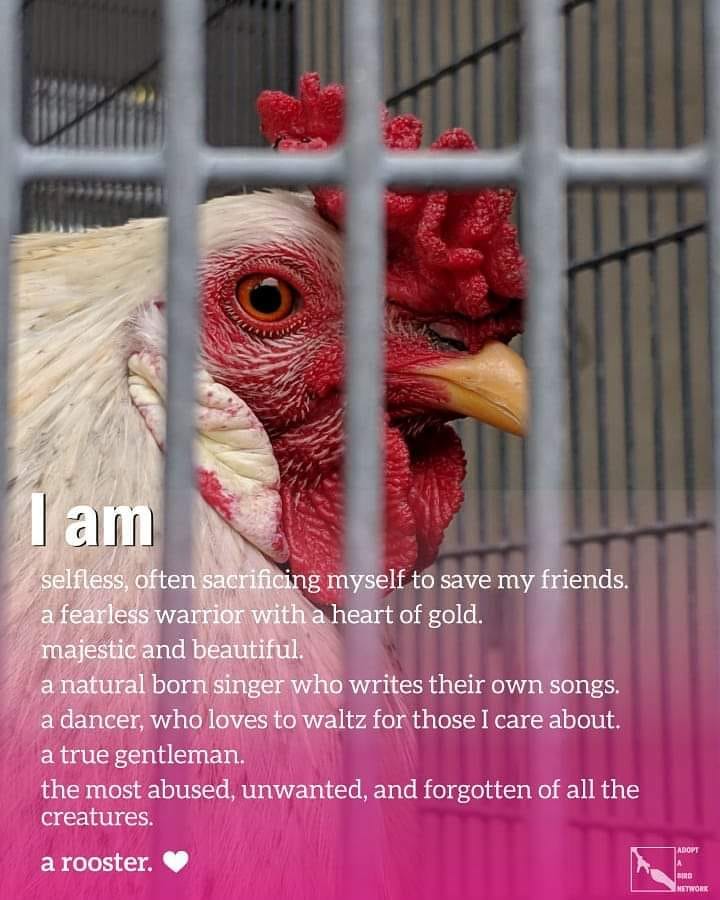
Each spring, loads of roosters are dumped in parks, thrown out of cars or locked out of their coops and left to fend for themselves. Chickens are prey animals and vulnerable without protection.
I had chickens for five years before getting a rooster. It wasn’t my plan, but I took in Isaac as a rescue. I’d seen him at the side of one of our main roads, but when I got out of my car he bolted for the woods. Several people tried to catch him with no success. Then, a couple of weeks later, a passerby stopped when he saw a pile of colourful feathers in the grass. He stopped to pick them up and spotted Isaac hiding in the bushes. By that time he was injured and desperate and allowed the Good Samaritan to pick him up. Isaac was clearly attacked by a predator; he’d lost all his tail feathers and was limping. I offered to foster him while looking for a permanent home. It wasn’t until I actually saw him up close that I realized he was a bantam and my flock consisted of standard sized hens.
Long story, short: he made a full recovery; I adopted him, he was one of my most personable, friendly birds and he fit right in with my girls. Not all roosters are as lucky.
‘Aggressive’ Roosters
Each spring, chicken keepers are unprepared for adolescence and don’t know how to deal with their formerly friendly cockerel. Sweet and cuddly boys can suddenly lunge at you with their feet, nipping and flapping their wings. He might begin to chase you off and scare you. You may worry about the safety of your kids.
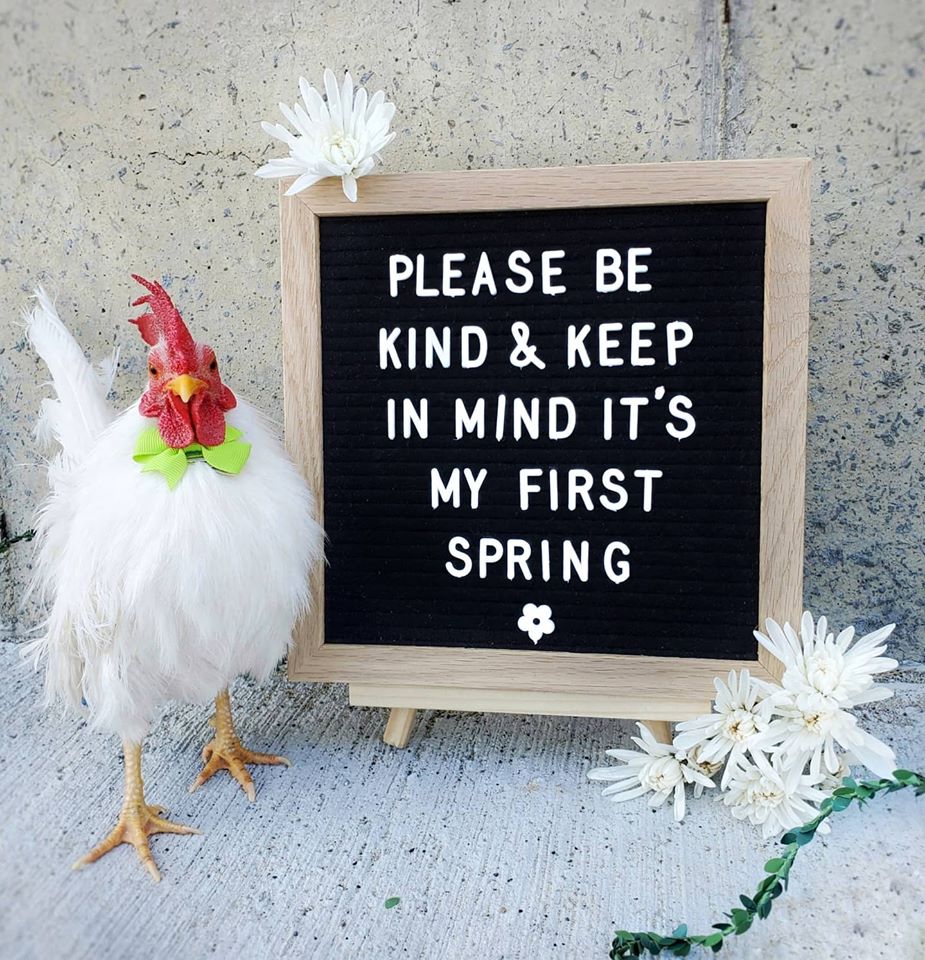
Between the ages of 6-9 months, cockerels are flooded with a surge of testosterone activating their instinct to protect their hens by any means necessary, including death. It’s can be frustrating and confusing if you don’t know how to adjust to this behavior. The good news is aggression is usually just a phase and calms down after their first year.
I have never had to deal with an aggressive rooster. My current rooster, Simon, did however, go through an adolescent phase when he could have been gentler with the hens. Seemingly overnight he went from being laid back to violently grabbing the hens and even trying to mate with them on the roost bars at night. I posted my concerns on a Facebook group and was advised that once a cockerel displayed roughness towards the hens that was it; I should dispatch him and turn him into soup. I’m glad I ignored that advice because he snapped out of that stage in no time.
I have seen aggressive roosters in action: those who chase, jump at or use their spurs on people. I’ve also seen people taunt and provoke their roosters in order to see them charge at the fence because they thought it was funny. Some of that unwanted behaviour is a result of teenaged testosterone and some is just what a rooster is supposed to do: protect his flock.
Facebook chicken groups are full of advice to hit, kick or carry roosters upside down to “show them who’s the boss”. Bullying and being brutal towards any animal is not the way to change unwanted behaviour. It only results in more aggression and will make things worse.
Taming Roosters
The key is to get your rooster to understand that you are not a threat and that his behaviour is a deal-breaker. Training, patience, affection and attention are the best cures.
There are ways to ‘gentle’ a rooster:
- Pick him up and carry him around.
- Hold him and gently stroke his wattles and comb.
- Don’t use aggression against him.
- Sit with the flock and feed them by hand.
- Recognize that for many cockerels this is a phase and a short one at that.
Here’s an example of how you can work with your rooster. Video courtesy of #PaulaAllday
What happens if all your efforts come to naught? Sadly, some roosters can’t be tamed. Don’t pass off a problem rooster to someone else who is unprepared to deal with him. At best, they definitely shouldn’t be bred as aggression is, in part, inherited.
You might come to the conclusion that your last option is to humanely butcher those that are determined to be aggressive and find yourself one of the many boys with gentle temperaments looking for their own flock. It’s heartbreaking butchering healthy, friendly cockerels for lack of a good home.
There seems to be some school of thought amongst some chicken keepers that roosters are superfluous and totally useless. I disagree. Chickens have evolved as flock animals and roosters have a role to play: finding food, mediating disputes, protection, reproduction and, yes, as yard art.
Having a rooster around is beneficial to your flock. Your hens will be protected and your rooster might just become your friend. Please give them the opportunity for a full life, they deserve it.
This is my boy, Simon, being a good dad and protector.
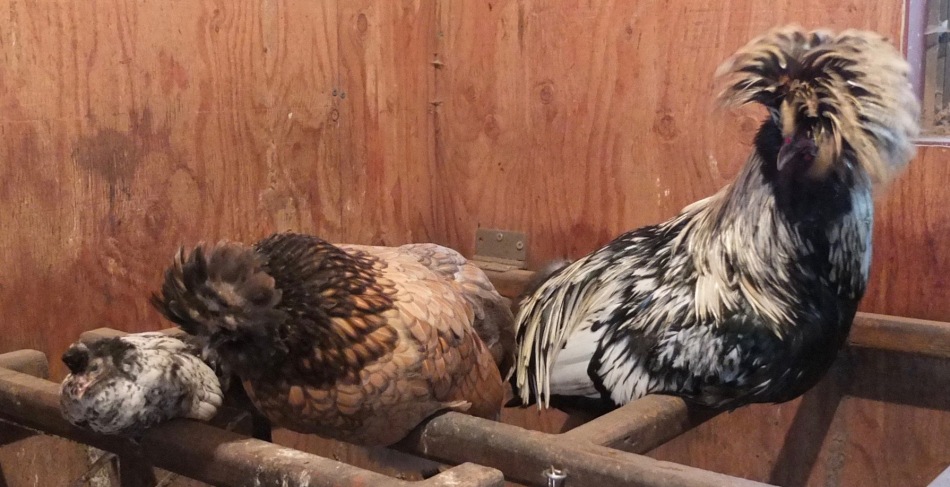
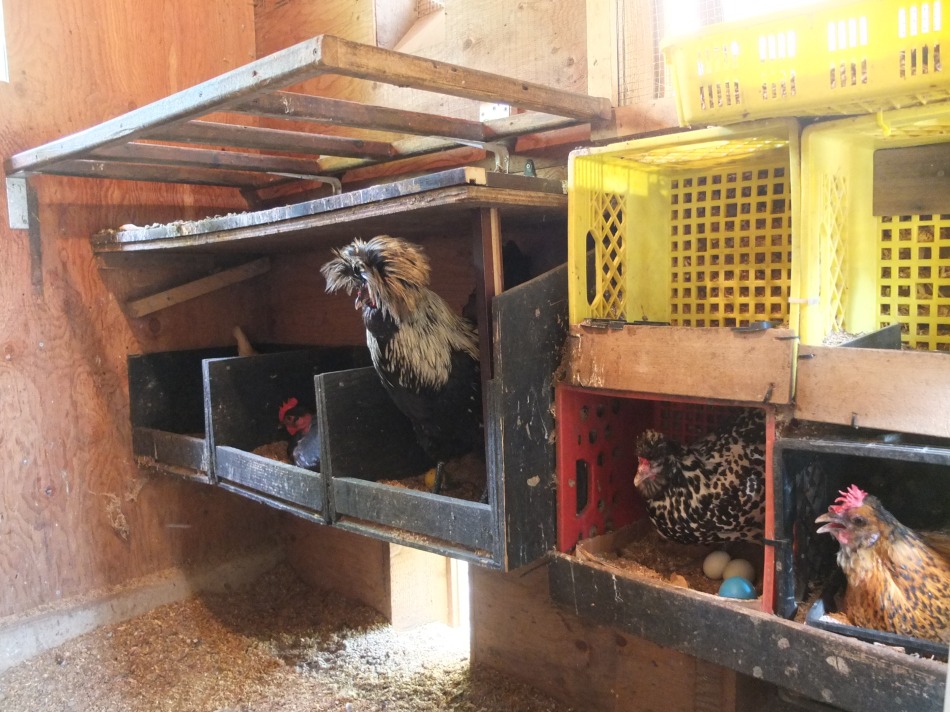
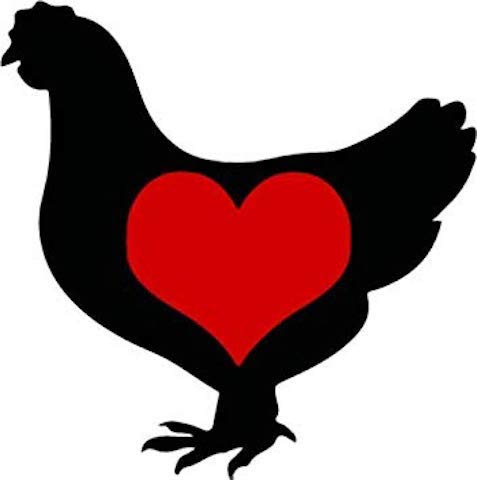


Excellent article!
LikeLiked by 1 person
I really commend you and your dedication to treating roosters with kindness and patience. I ordered chicks 10 years ago and one turned out ro be a little boy. I found a feed store who said they would find him a home. I gave them my name and phone number if they couldn’t. It took 3 weeks and the people at the feed store called to let me know that a lady was looking for a Bantam rooster. I was so happy!. I also gave her my number if she could not keep him. I am happy to say that she did not call me back!
LikeLiked by 1 person
I understand that all roosters can’t find a forever home; it’s their ill-treatment I object to. Good on you for being patient and finding him a new home. My first rooster was a bantam and he was fantastic.
LikeLike
Sound advise, mistreatment of animals is never ok….Someone recently asked me about making capons(neutered males) this Spring it seems I have excess roos so how do you make capons? It used to be more common. I think long ago capons were linked with cancer, but like so many old wives tales, I really can’t see how the two would be linked.
LikeLike
Caponizing is the surgical castration of cockerels to improve the quality of their meat for eating. I’d never encourage folks to do at home surgery without anesthetic and the risk of infection and possible death. And I agree that there isn’t a link between eating capons and cancer.
LikeLike
I was honestly so petrified of roosters before I met my boy Blue!
He is such a beautiful natured boy with so much personality!
The love he has for his hens and so sweet!
I know we shouldn’t have favourites but my Blue is mine xx
LikeLiked by 1 person
a buddy had to move and brought over an old banty rooster and he spent most of his time in the spruce tree, keeping watch and didn’t even like the coop . My first six chickens and a couple of his banty girlfriends were a great fit, but he also sounded alarms and the cats, cows, horses, and Pauls old blind dog paid attention when that happend. HEADS UP.
LikeLiked by 2 people
We have 3 roosters and 9 hens that isn’t a good ratio is it? I’m torn between getting more hens or re-homing 2 of the roosters.
LikeLiked by 1 person